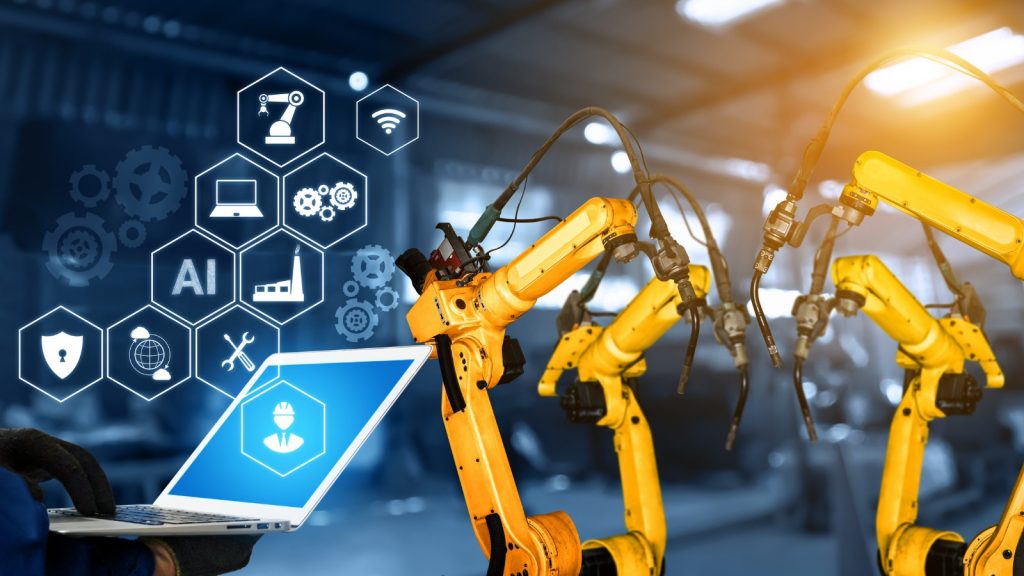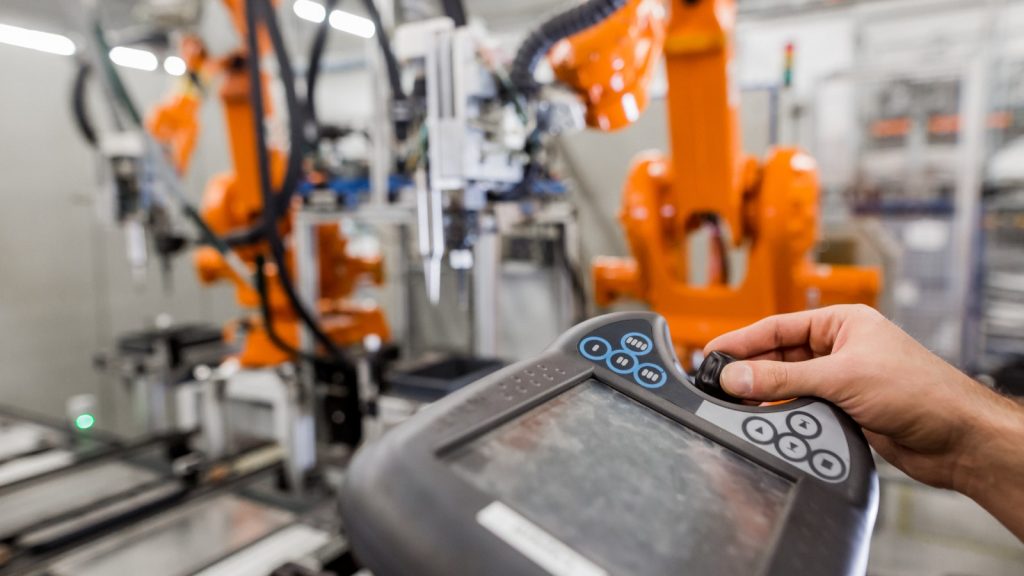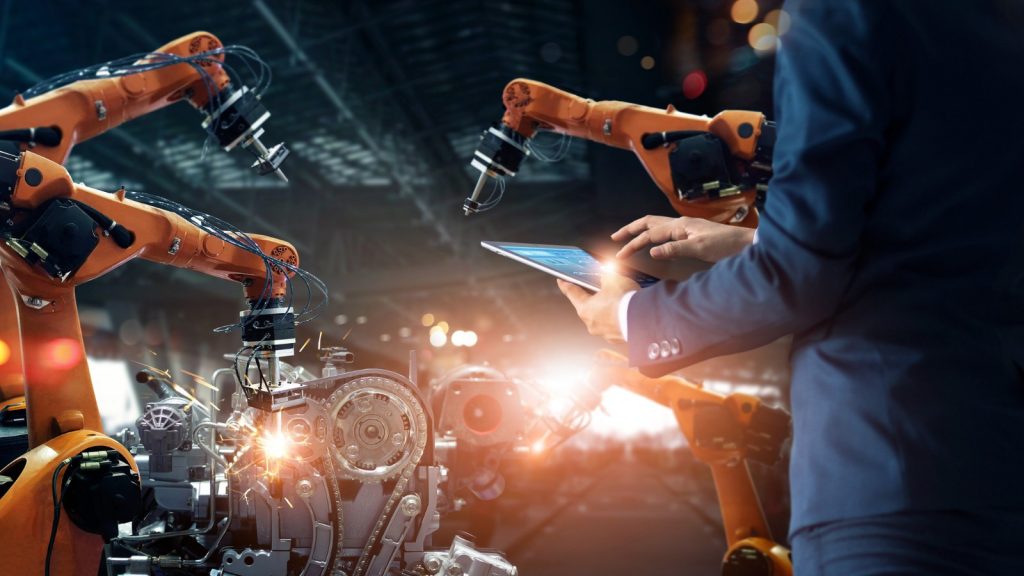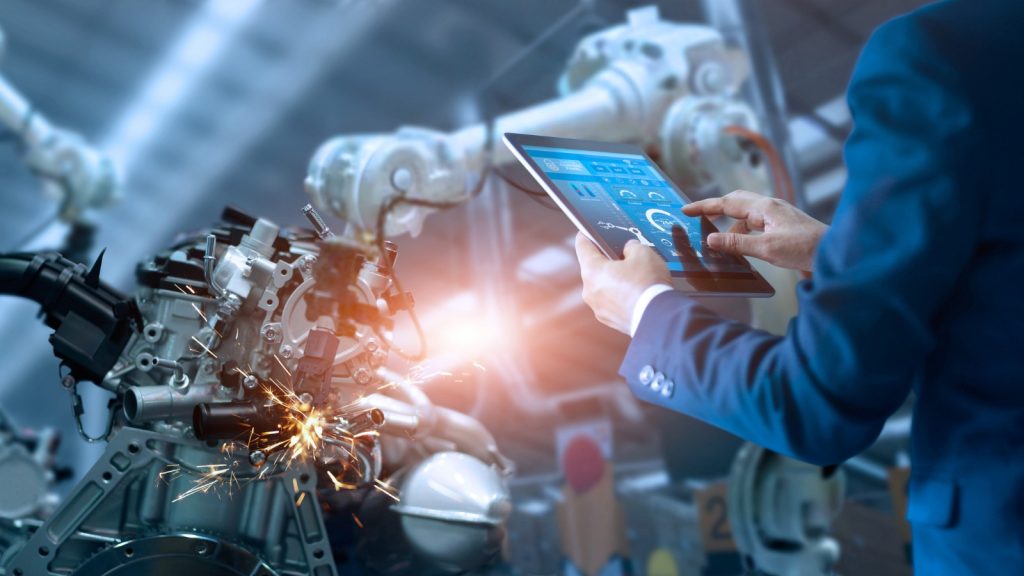With the dawn of the new digital era, there is a buzz around some advanced technologies like Artificial Intelligence, Machine Learning, and Deep Learning. More and more companies started moving forward with them as they understood the capacity of these technologies and how they could streamline the industrial workload. Considering such benefits, the manufacturing industry in Singapore heavily relies on the above now. Now there has been a shift from traditional manufacturing to digital manufacturing, and these technologies have become the bridge that connects the dots between these two aspects.
In this article, we explore the role of Machine Learning when it comes to digital manufacturing in Singapore.
We will explore
What is Machine Learning?

- Machine learning technology, or ML, is a branch of artificial intelligence. This branch is specifically designed and focused on creating algorithms that encourage computers to learn from and make predictions or decisions based on data.
- You may remember how old-age software functioned. They were put into a tight grid by the developers at the initial stage; this software did not have any strength to self-learn and change its nature according to market dynamics. But when it comes to ML, it is the opposite of that.
- Unlike traditional computer programs, which rely on explicit instructions, machine learning algorithms learn patterns and relationships within data to improve their performance over time.
- This learning process goes from algorithms iteratively adjusting their parameters to minimise errors or maximise performance metrics while on the move.
- Machine learning techniques include three main types of learning patterns. The number one is supervised learning. This is where models are trained on labelled data. The second one is unsupervised learning, where models identify patterns without labelled data. The third is reinforcement learning, which lets models learn through trial and error in an environment.
- This has various faces. This means ML finds applications in various fields. This includes image and speech recognition, natural language processing, recommendation systems, predictive analytics, autonomous systems, etc. The latter certainly revolutionise industries, especially manufacturing, by automating tasks, allowing data-driven decision-making, and unlocking insights from vast datasets.
- With ML power in use, the manufacturing domain is up-to-date and empowered to change its business models anytime.
Key Benefits of Machine Learning in Digital Manufacturing

Quality Control
Manufacturing is known as an industry that pays an intensive level of attention to quality. For them, taking full-scale quality control over their production is highly essential.
This is exactly where ML plays a key role. Let us explain how this happens. Machine learning technology enhances quality control through its advanced algorithms to analyse vast amounts of data from production processes and product inspections.
It is visible that one manufacturing company generates a large volume of data within one framework. How can they handle such massive volume during their operations? ML models not only inspect them but can also detect defects, anomalies, and patterns indicative of subpar quality by examining images, sensor data, and other relevant parameters.
These models can classify products based on predefined quality criteria. The latter can flag or reject items that fail to meet standards automatically. Also, machine learning makes predictive maintenance easier by recognising equipment defects or breakdowns that can lower the quality of the final output.
As it naturally does, this technology can continuously learn from new data and feedback. Accordingly, ML-based quality control systems improve their accuracy and adaptability over time, leading to higher production yields, reduced waste, and enhanced customer satisfaction.
It is quite obvious that, due to its ability to conduct real-time monitoring and analysis, machine learning technology drastically helps manufacturers identify and address quality issues promptly. In the end, they can guarantee consistent product quality throughout the entire manufacturing process.
Expediting Production Processes
It is totally unnecessary to worry about slower production when you can double the speed of your production process via ML.
Machine learning technology expedites production processes in digital manufacturing as it can optimise various aspects of the production line. First, ML algorithms analyse large volumes of data from sensors, machinery, and historical production records to identify inefficiencies, bottlenecks, and opportunities for improvement.
Then, these insights make their way to predictive maintenance, where potential equipment failures are spotted. When the manufacturers have the capacity to foresee them, it is a great chance for them to minimise downtime. Also, the most outstanding functionality of the latter is its advanced algorithms that optimise resource allocation by dynamically adjusting production schedules. Not limited to that, they keep assigning tasks to machines or workers efficiently and streamlining workflows.
Another thing is that ML-driven predictive analytics is powered to forecast demand accurately. This allows manufacturers to adjust production levels in real time to meet customer needs.
Waste Reduction
If you think of waste, manufacturing is the number one source of waste due to its nature. But with ML capabilities in hand, this can be drastically reduced, for sure.
In this era of digital manufacturing, there is no room for waste. However, this occurs through several mechanisms. During the initial stages, ML algorithms optimise production processes by analysing data from sensors, machines, and other sources to identify inefficiencies and opportunities for improvement. At the same time, it minimises downtime through predictive maintenance and optimises resource allocation, such as energy and material usage. As you can see, these MLs enhance overall operational efficiency as they cover each aspect that can cause waste.
That is not all. Since ML couples with predictive analytics for demand forecasting, it is easier for manufacturers to ensure they produce only what is needed. This certainly reduces excess inventory and overproduction.
Likewise, ML-powered quality control systems detect defects and anomalies in real time, and that allows for immediate corrective actions. This is a clear backup to minimise the production of defective products.
You may understand that by using ML in digital manufacturing, sustainability is protected.
Yield Optimisation
Yield is another aspect that ML takes care of. You know that maximum yield in the manufacturing domain receives so much weight in today’s dynamic market.
This is why you need to consider combining your processes with ML technology. This contributes significantly to yield optimisation in digital manufacturing by going up and down through vast amounts of data to identify patterns, trends, and factors influencing production outcomes.
ML algorithms use environmental factors, sensor readings, and previous production data to find possible manufacturing faults, bottlenecks, and inefficiencies.
ML helps minimise downtime and guarantees continuous production, which maximises yield, by anticipating equipment breakdowns through predictive maintenance. Furthermore, in order to reduce waste and increase productivity, machine learning models constantly modify labour allocations, material use, and production schedules.
In the end, ML ensures the manufacturing industry extracts the best essence out of each material, chemical, extruder, and process in order to produce the best outcome.
Cerexio Solutions for Rapid Manufacturing Growth

Cerexio solutions are specifically designed and developed to offer the best service for the manufacturing industry. From production line, packaging, yield optimisation, and supply chain management to distribution, Cerexio Solutions takes care of everything under one platform. Since our software is powered by Industry 4.0 capabilities, you can easily ensure the best outcome while keeping your sustainability promise alive.
Coupling with ML for Fully Optimised Digital Manufacturing

You have read this whole article, and you know that the power of Machine Learning cannot be limited to one or a few aspects. Every task and procedure can be simplified and expedited through the power of ML in digital manufacturing. A set of robust algorithms paves the way for you to reach the ladder of success.
